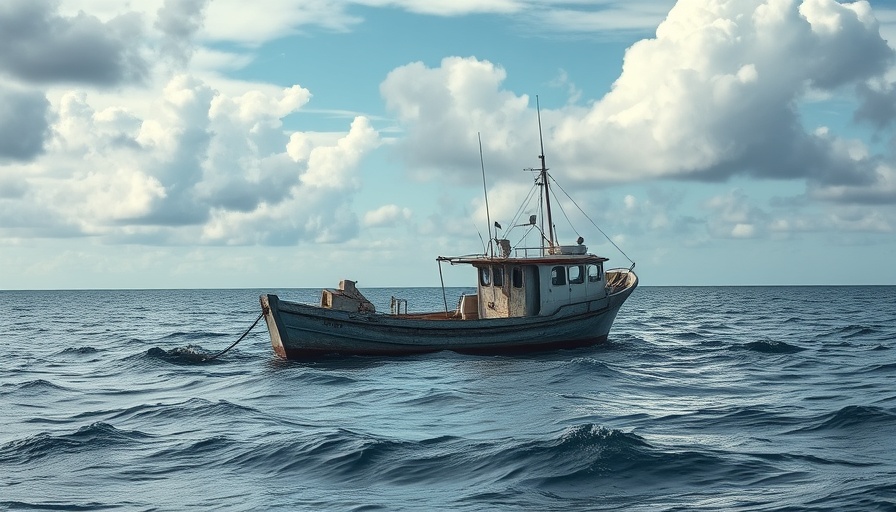
Understanding Australia's Stance on Illegal Fishing
Australia has recently taken a firm stance against illegal fishing with notable repercussions for those caught violating its waters. The conviction of nineteen Indonesian nationals for illegally fishing in the country's waters is a reflection of the government's commitment to protecting marine biodiversity and enforcing environmental laws. These individuals were apprehended in two separate incidents involving illegal vessel operations in the Northern Territory's Cobourg Marine Park and near Maningrida.
Actions Taken by Authorities
On June 22 and June 25, 2025, the Australian Border Force (ABF) identified and intercepted three Indonesian fishing vessels that violated the Fisheries Management Act 1991. The authorities confiscated over 130 kg of sea cucumbers, alongside 390 kg of salt and other fishing equipment. The vessels were promptly destroyed at sea, underscoring Australia’s zero-tolerance policy towards illegal harvesting. Each vessel’s master received a hefty fine of A$6,000, while crew members were fined A$3,500. The fines also carry serious implications: non-payment could lead to additional imprisonment.
A Collaborative Approach with Indonesia
This incident is not isolated; it represents a broader struggle against illegal fishing in the region. Australian authorities are actively collaborating with the Indonesian government to combat this issue at its roots. Initiatives include disseminating educational materials and leveraging social media to communicate the legal consequences and ecological importance of sustainable fishing practices. By engaging directly with fishing communities in Indonesia, Australia aims to foster a culture of compliance and stewardship over shared marine resources.
Current Trends in Marine Resource Management
With the global demand for seafood on the rise, illegal fishing remains a significant issue threatening the ecological balance and the livelihoods of legal fishers. According to the UN’s Food and Agriculture Organization (FAO), approximately one-third of global fish stocks are overfished, and illegal activities are a major contributor to this decline. Australia's proactive measures could serve as a model for other nations grappling with similar problems.
Public Perception and Community Impact
For many, fishing is not just an occupation but a vital aspect of their cultural heritage and community sustenance. The fishermen involved in these illegal operations may be driven by economic necessity, highlighting a complex intersection of poverty and environmental protection. There's an increasing awareness that sustainable fishing should harmonize with local livelihoods, pushing for a conversation about how to support legitimate fishing industries while protecting marine habitats.
Looking Forward: Future Implications and Commitment
The legal actions against the Indonesian nationals reflect a broader strategy encompassing both enforcement and education. As Australia continues to fine and deport illegal fishers, crucial conversations surrounding the sustainability of marine resources and their management will evolve. The integration of local communities in these discussions will be paramount, as understanding their needs and challenges will lead to more effective solutions. Australia’s commitment to protecting its waters can potentially inspire a wave of change towards sustainable global fishing practices.
 Add Row
Add Row  Add
Add 




Write A Comment